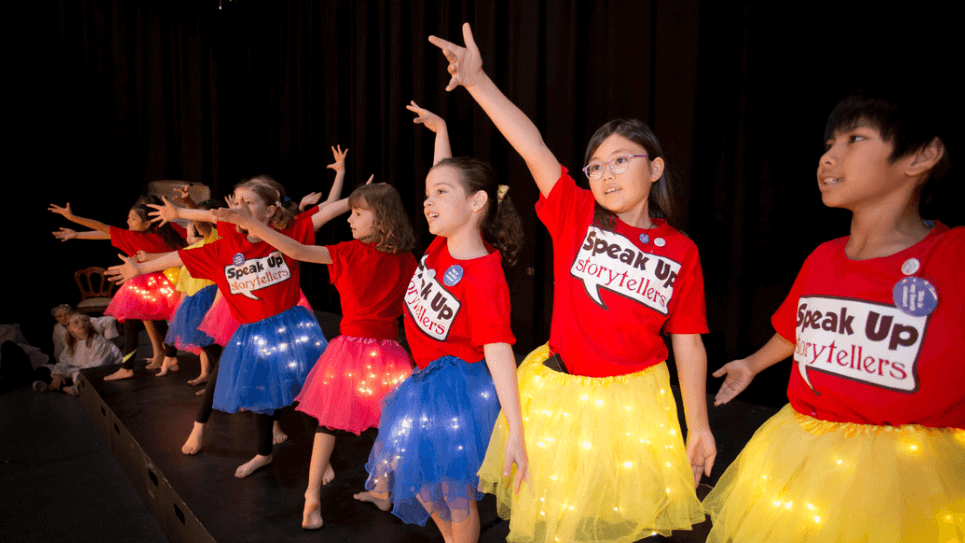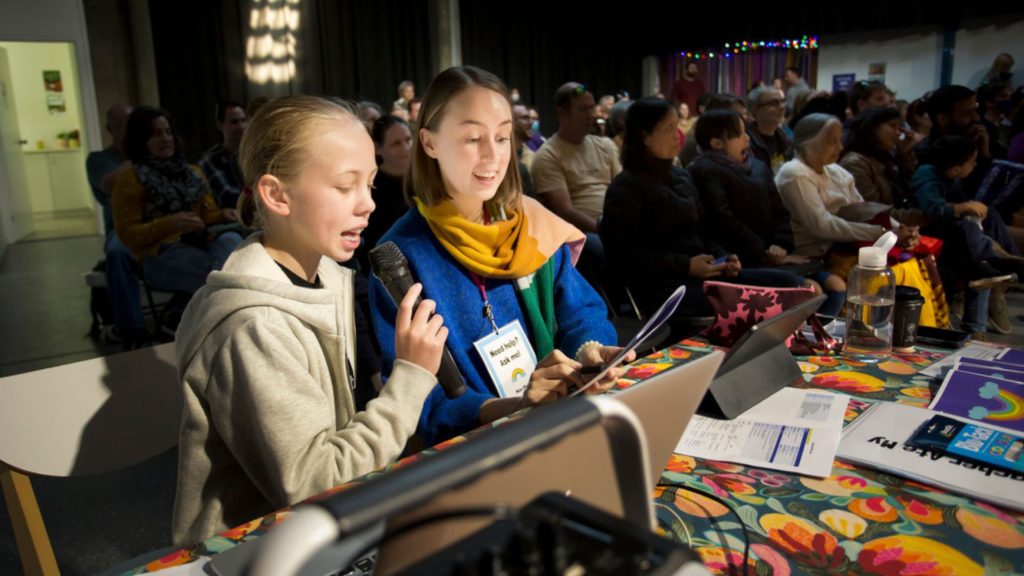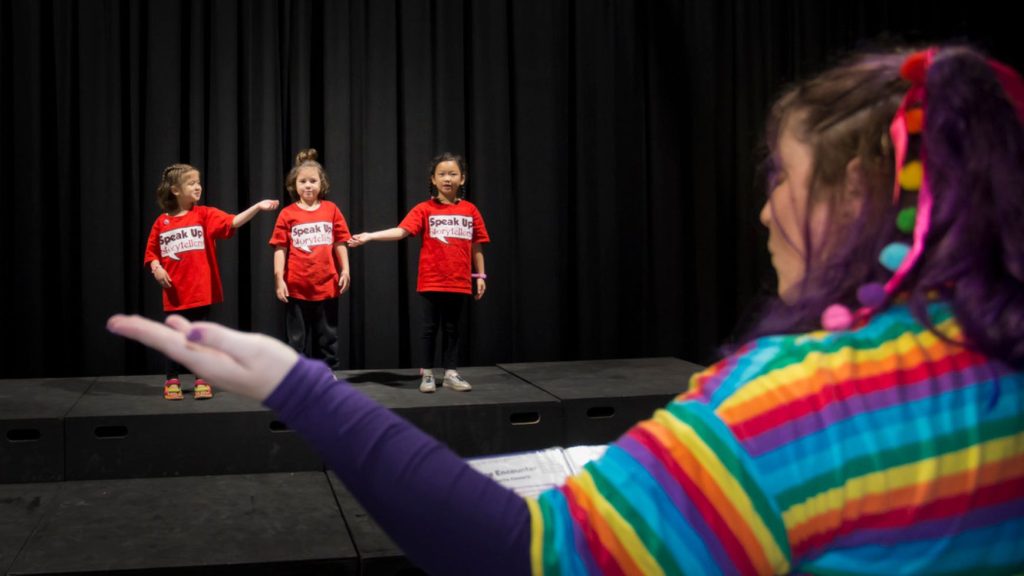
03 May Raising confident, clear communicators
Speech and Drama classes are often praised for developing creativity and confidence in children. But they are also an invaluable means of promoting and fostering communication skills.
Communication is a skill that we use every day! In fact, it is one of the very first skills we learn to use as infants. When we were babies we communicated with our parents through facial expressions and cries long before we could talk.
In speech and drama classes we work on developing your child across many different facets of communication, not just on speech. Have you ever heard the famous saying that when we communicate, only 40% is verbal and the remaining 60% is non-verbal (AKA gestures & body language)? Well, it’s true. The games and activities you’ll find in a drama class all work to develop skills in both verbal and non-verbal communication!
How to foster communication skills inside and outside of the classroom
Verbal communication – the words we say and how we say them

In speech and drama classes we encourage students to develop their articulation, projection, and vocal variety. In addition, students learn to listen actively and respond in a clear and concise manner. Drama classes provide a fun, engaging, low pressure way to develop speaking skills such as putting thoughts into words, thinking on their feet and having the confidence to speak up!
Non verbal communication – “What you do speaks so loud that I cannot hear what you say.” – Ralph Waldo
Nonverbal communication includes things like facial expressions, body language, and tone of voice. In drama, children have to use these nonverbal cues to convey meaning and emotion. They may have to use their bodies to express how a character is feeling or use their tone of voice to convey a particular emotion. Developing these skills can help children communicate more effectively in their daily lives. This form of nonverbal communication is often referred to in drama as the subtext. In drama, we learn the subtext within a scene or text, which is a valuable life skill that extends beyond the classroom. It can be applied when meeting new people, working in a professional setting, or interpreting a text.

“No one can whistle a symphony. It takes a whole orchestra to play it.” – Halford E.
In drama activities, children often have to work together in groups. They may have to collaborate on a scene or a play, which can help them develop teamwork skills. Additionally, drama can help children learn how to take turns, listen to others, and give and receive feedback. These are all important social communication skills that can help children build relationships and succeed in their personal and professional lives.
“The great gift of human beings is that we have the power of empathy, we can all sense a mysterious connection to each other.” – Meryl Streep
In drama children explore different emotions and learn how to express themselves in different ways. We encourage and grow children’s emotional communication skills by acting out scenes that involve conflict, sadness, or joy, which can help them learn how to regulate their emotions and empathise with others.
So how can you support your child’s communication skills at home?
- Reading! Reading is an incredibly effective activity to improve your child’s communication skills and proficiency. Children learn to communicate by observing, so by reading to them you are modelling crucial communication skills such as tone, inflection and gesture. It also works to expand their vocabulary. Reading together provides the opportunity to have discussions with your child which will only further develop their confidence in articulating and sharing their thoughts, opinions and ideas.
- Ask them to teach you one of their favourite drama games! Having the ability to deliver instructions is a skill that they will use for many years to come.
- Practise! Communication is a skill, and like all skills it requires practise to be developed and refined.
Communication is a skill that you can learn. It’s like riding a bicycle or typing. If you’re willing to work at it you can rapidly improve the quality of every part of your life. ~ Brian Tracey, Author
As a child develops, it is important we nurture their communication skills so they are capable of expressing themselves, clearly and confidently, in all aspects and areas of their life.
If you have a child who is interested in drama, consider encouraging them to participate in drama activities, whether it’s through a school program or a community theatre group. By doing so, you can help your child build their communication skills and confidence in their ability to express themselves.
Read more about how we develop all facets of communication skills here.

